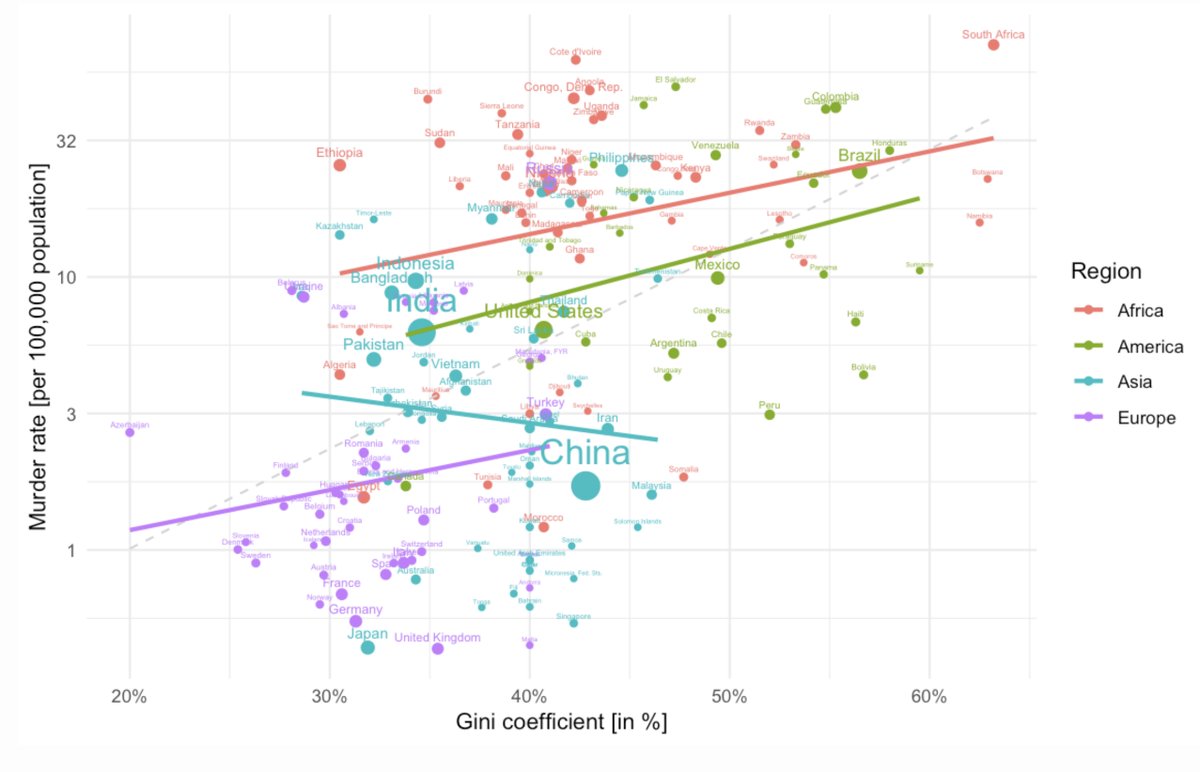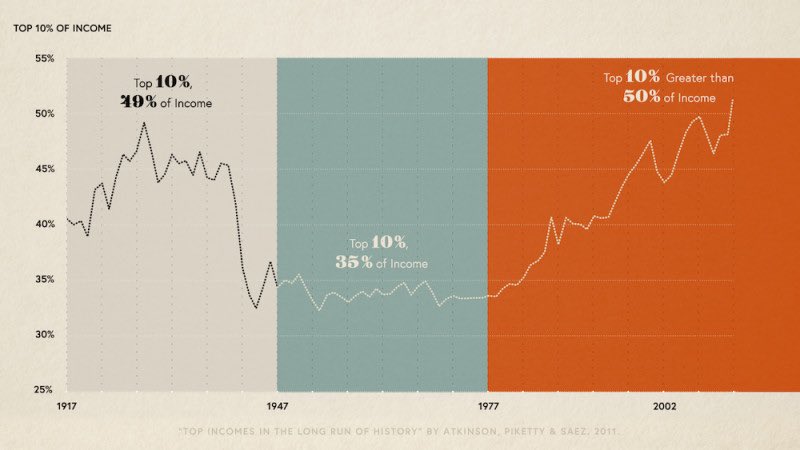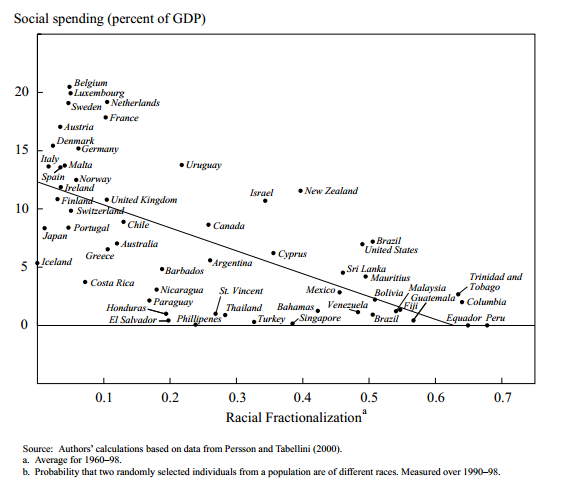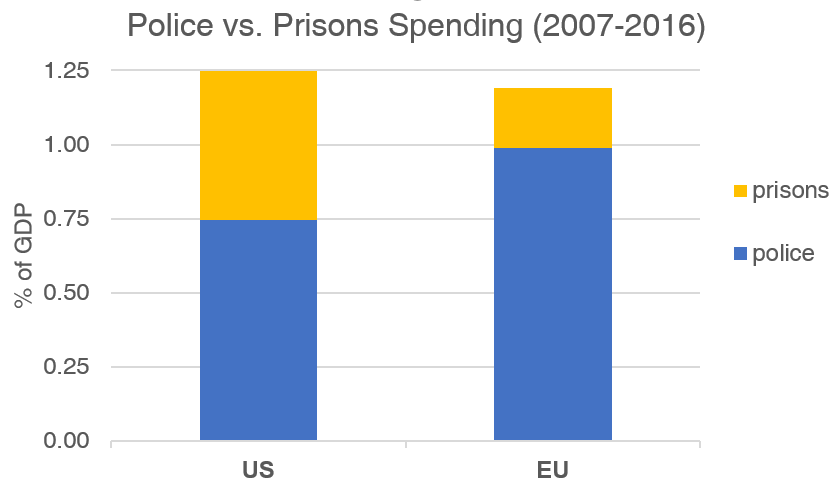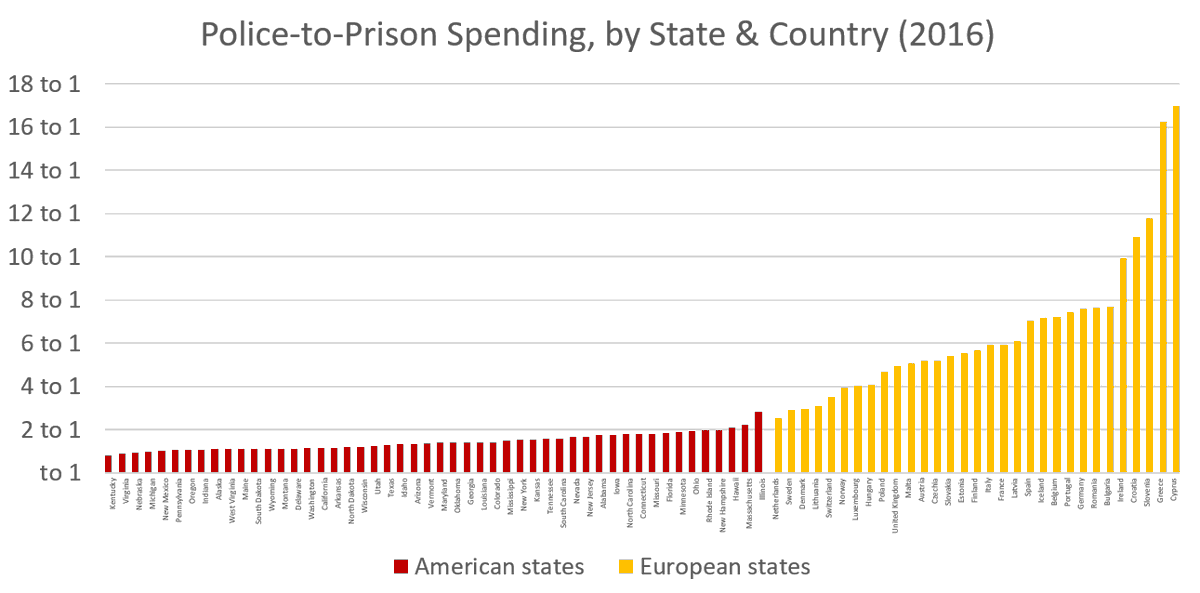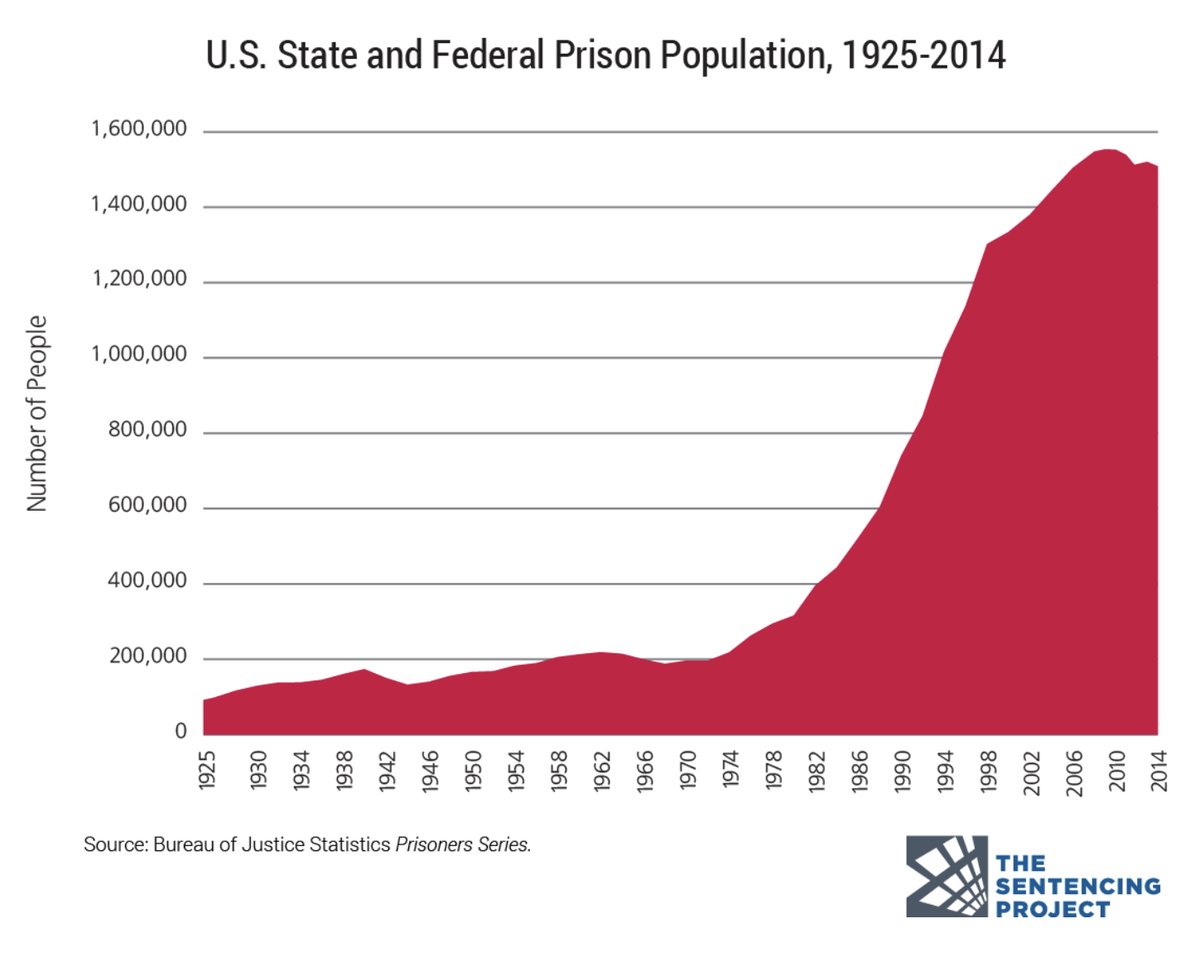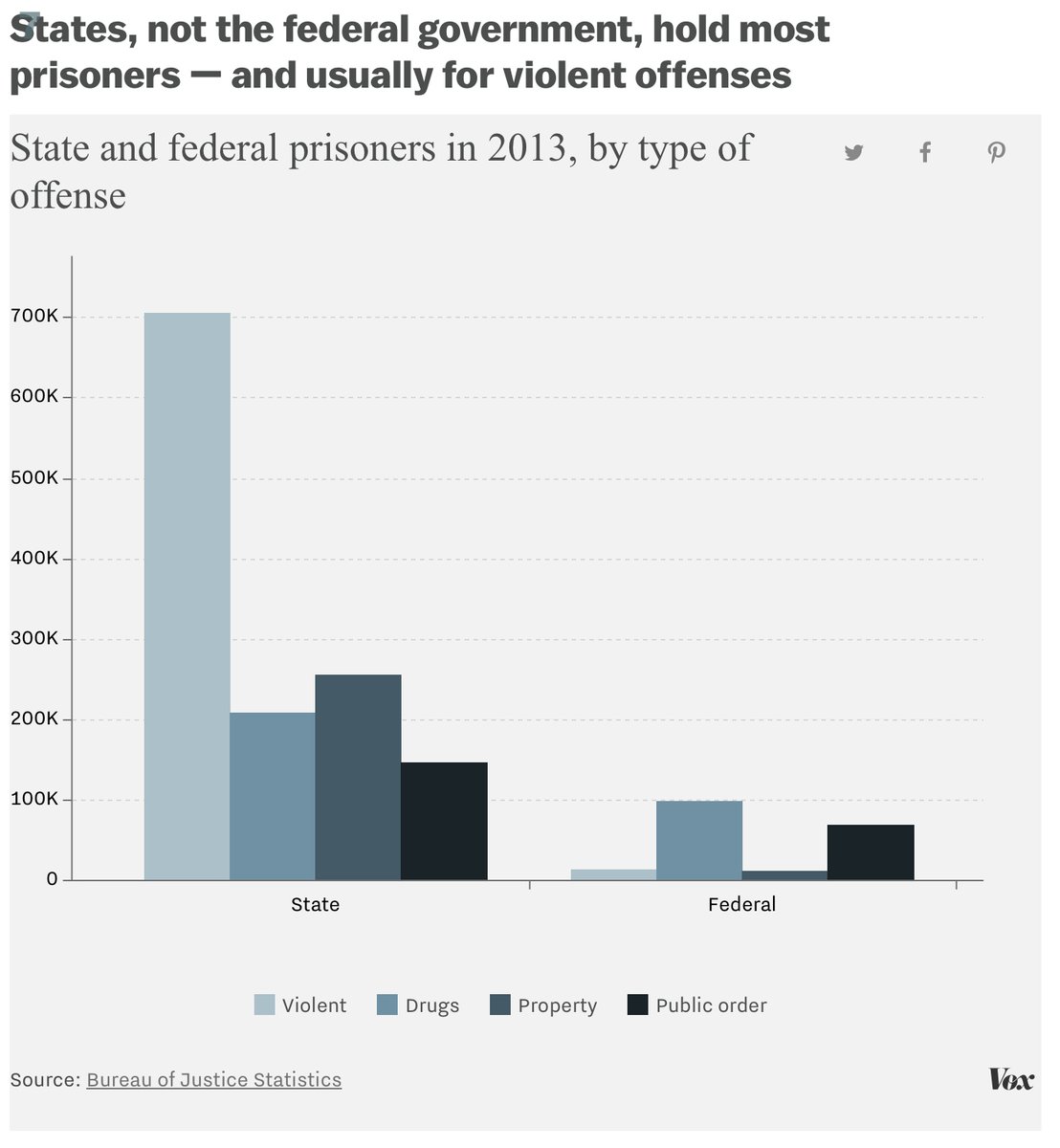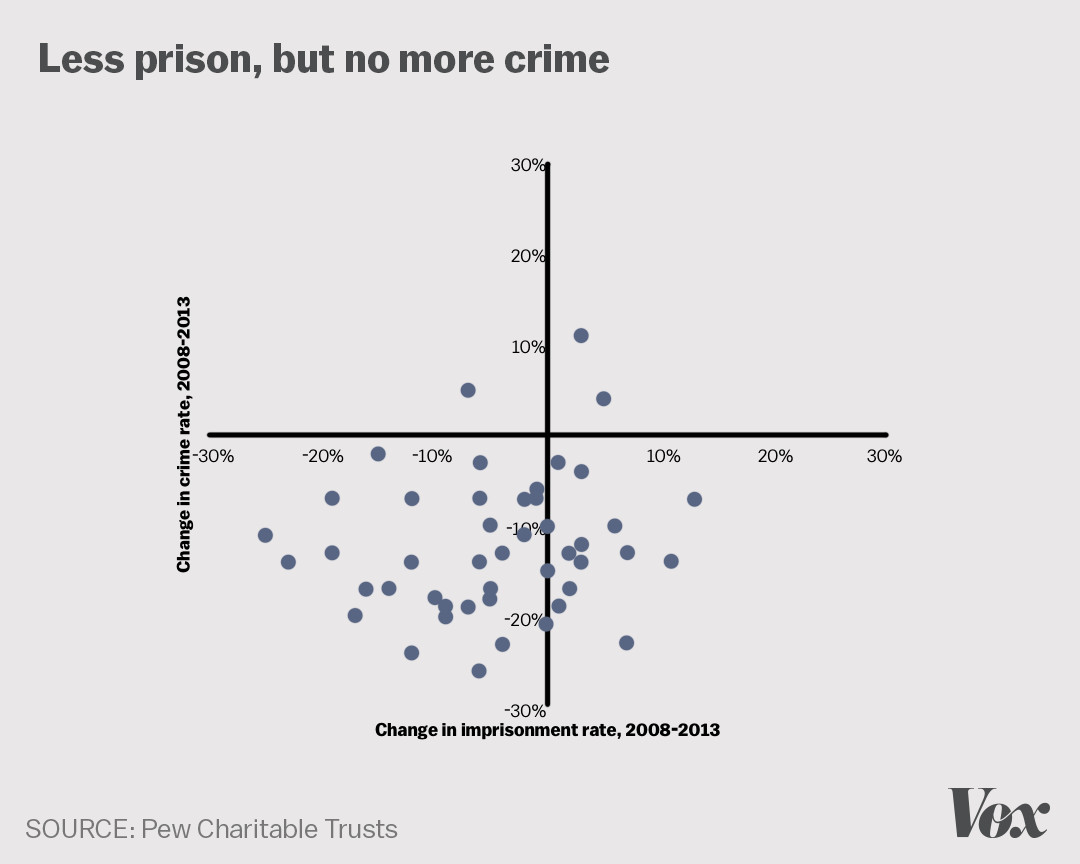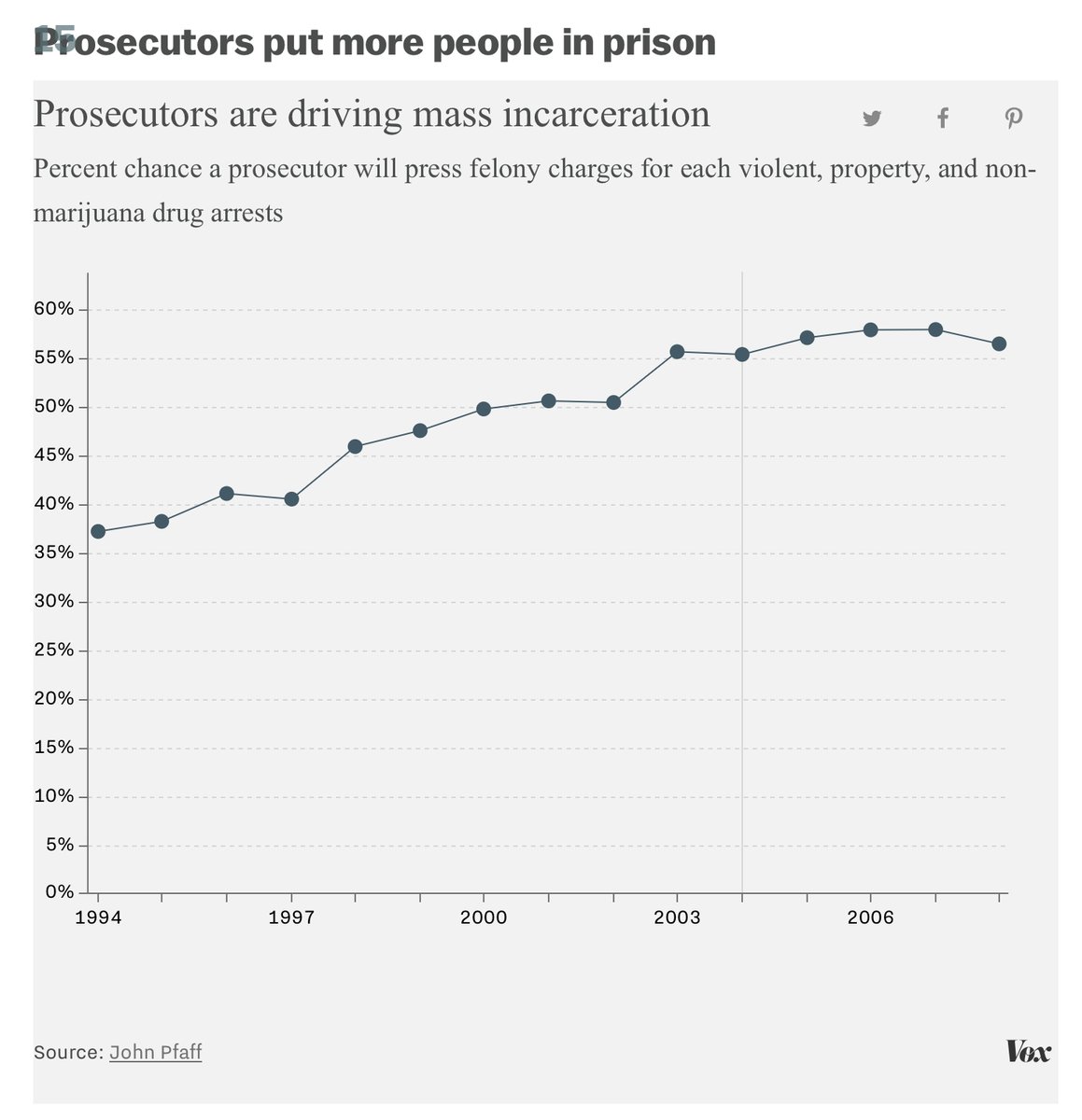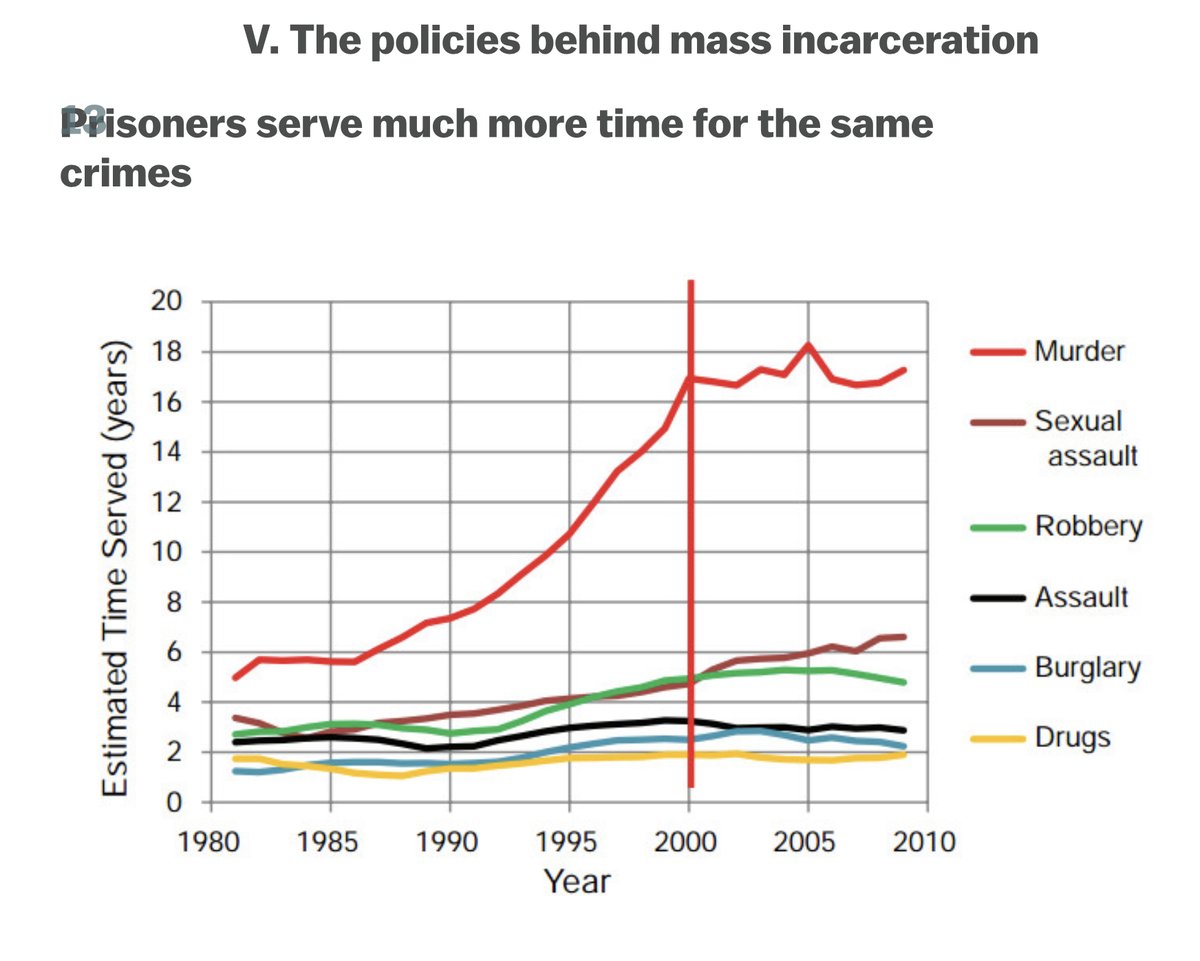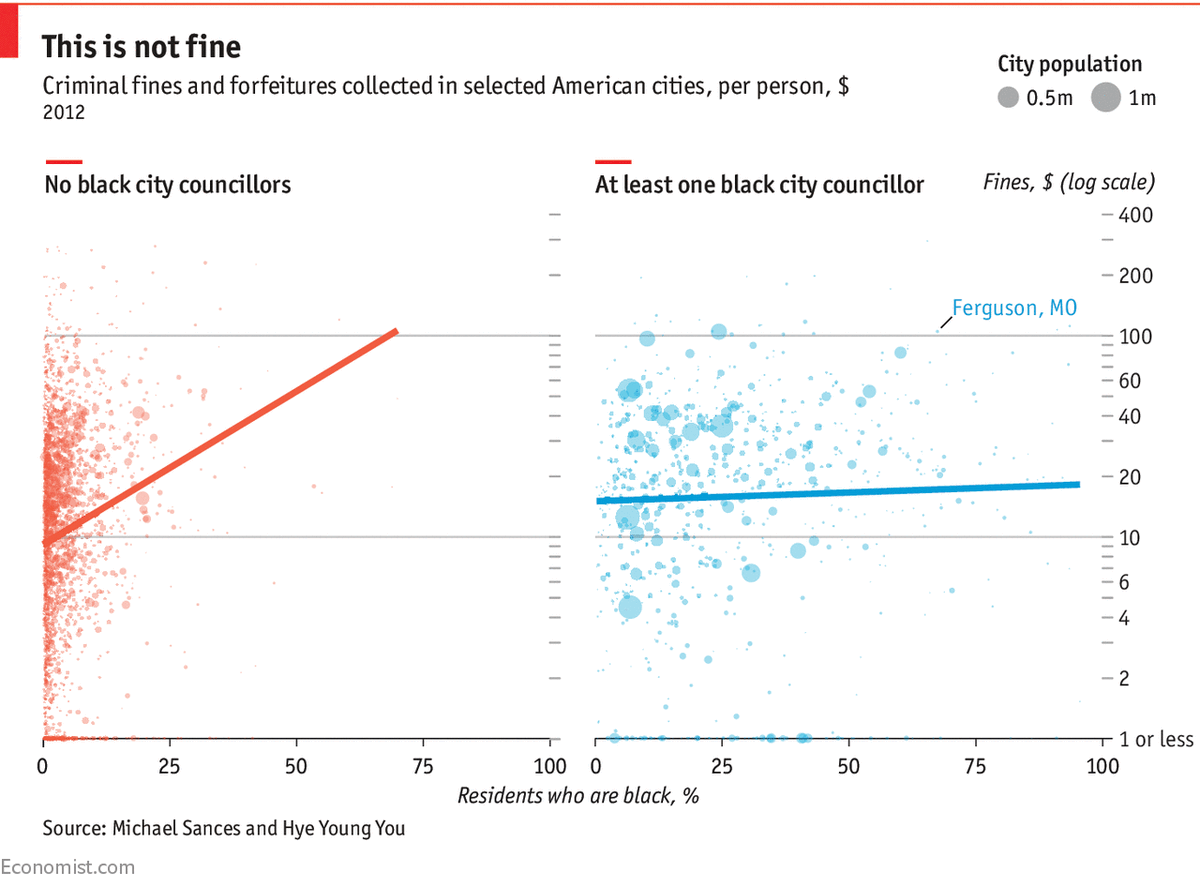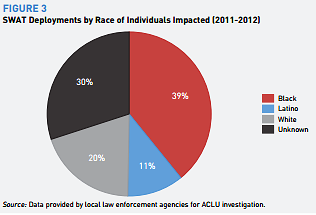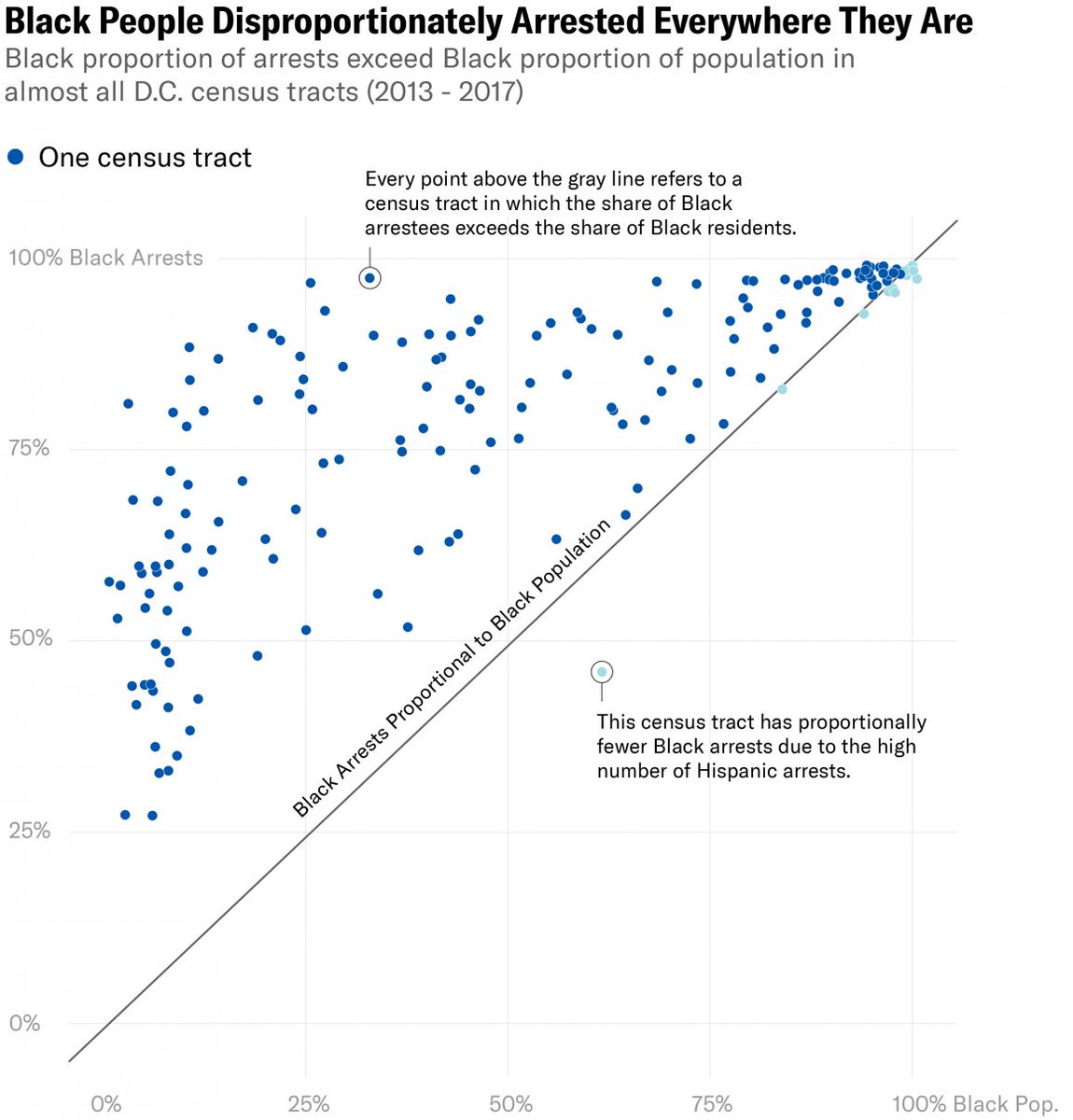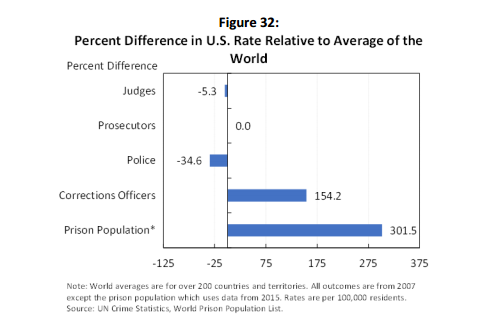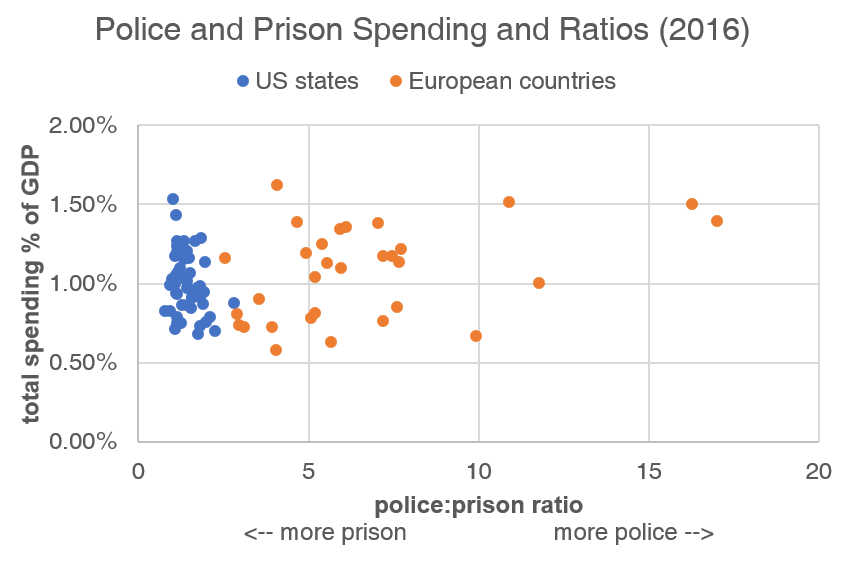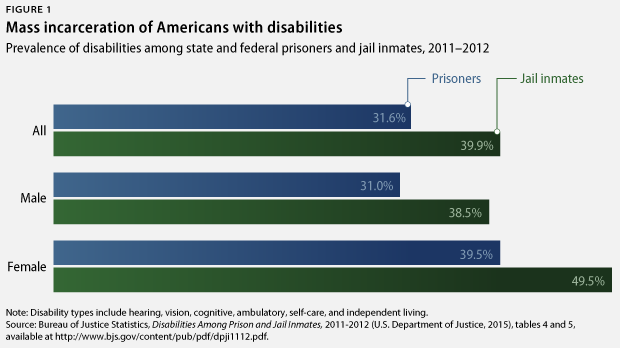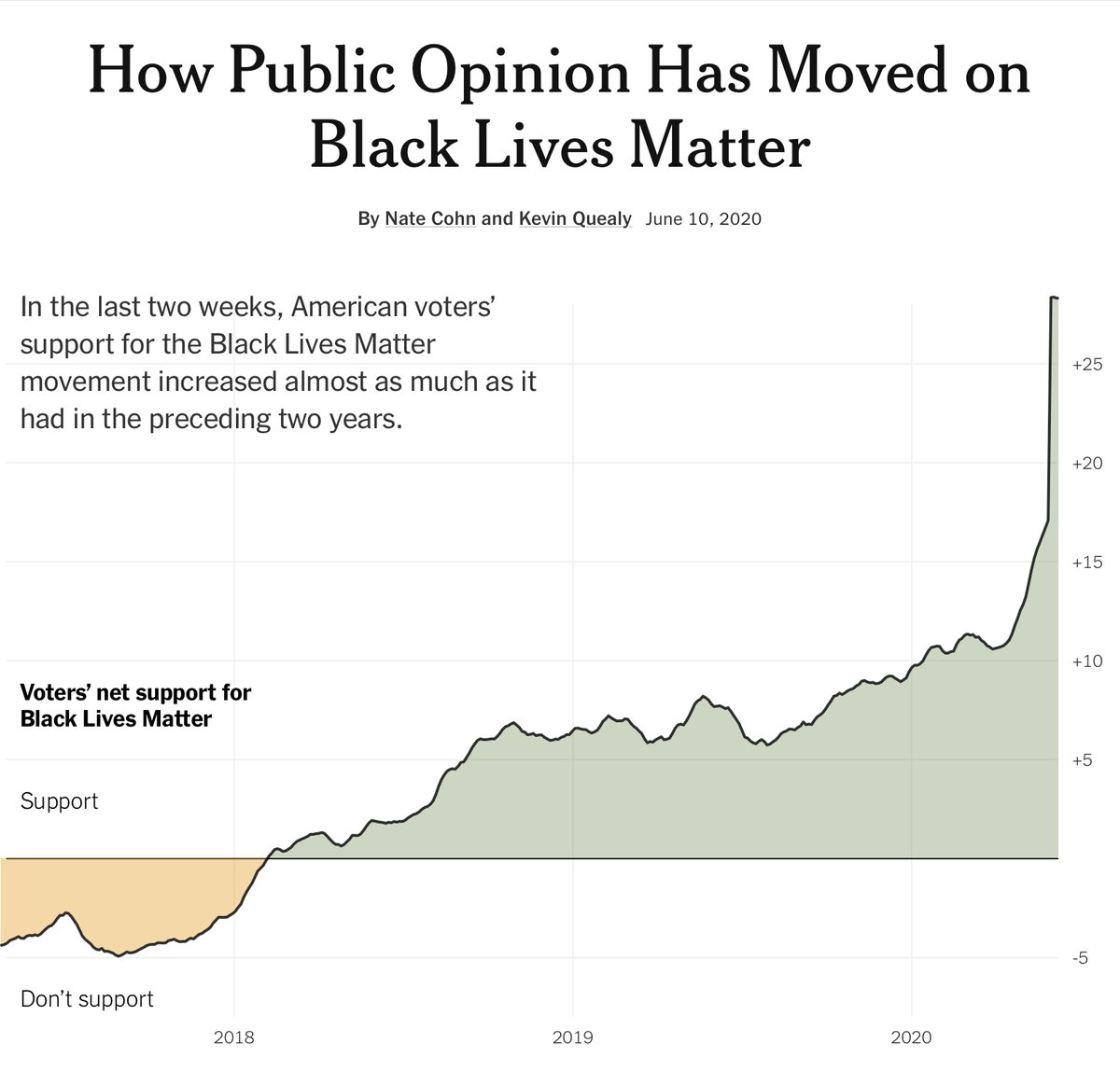Policing in Nordic countries—which enjoy smaller police forces and vastly lower rates of violent crime and incarceration—shows us what life might look like under *dramatic reform* rather than complete abolition (which I still find utopian). https://theweek.com/articles/918143/what-america-learn-from-nordic-police
Cross-nationally, we’ve long observed a relationship between crime and inequality. The article argues that getting to a Nordic-style equilibrium of low crime, low policing, low incarceration requires massive investment in the welfare state.
Redistribution—a mix of welfare state investment, financial market regulation, and anti-trust legislation—is long overdue. America has not been this unequal since before WWII.
There are also some challenges unique to the US relative to other rich countries. The US has something like 1.2 guns per capita while Norway has 0.28. This both makes demilitarization more difficult and the “substitutes” to policing potentially more dangerous.
The US’s biggest challenge is that ethnically diverse countries invest less in social welfare. The sad truth is the US would need to be a major outlier on this plot in order to get to the level of social spending associated with a Nordic-style criminal justice equilibrium.
Why? Because it is far too easy for those who oppose increased social spending to dog whistle (or in the case of POTUS, foghorn) people’s fears and stereotypes of immigrants and POCs.
That is the biggest barrier to building a welfare state, the idea that “my hard-earned money will be given to The Other.” We would need to radically redefine how Americans conceive of “the nation.”
As long as we only have two parties, and those parties are polarized around race, I am not sure how we get there.
As I was searching plots, I came across one comparison that really surprised me. The US and Europe spend very similar % of GDP on criminal justice. It’s the allocation that varies significantly. Europeans spend much less on prisons and much more on police. https://blog.skepticallibertarian.com/2019/01/09/charts-police-vs-prisons-in-the-us-and-europe/
Even when you disaggregate the data and compare US states to European countries, you’ll see vastly different police:prison spending ratios, although the ratio in Nordic countries are closest to the ratios of some US states.
Finally, I found this article by the @urbaninstitute helpful: https://www.urban.org/policy-centers/cross-center-initiatives/state-and-local-finance-initiative/state-and-local-backgrounders/police-and-corrections-expenditures
Since 1977 (a major inflection point in the US in terms of wealth inequality and the War on Drugs) while police spending has gone up in absolute terms, it has remained a relative constant 4% of total expenditure over the last 40 years.
What *has* increased dramatically since 1977 is the US prison population, driven primarily by the incarceration of black men.
https://www.vox.com/2015/7/13/8913297/mass-incarceration-maps-charts
https://www.vox.com/2015/7/13/8913297/mass-incarceration-maps-charts
There are many reasons for this that fundamentally *do* relate to the drug war, although it’s worth noting that the vast majority of people in prison are in state prisons, for violent crimes. https://www.vox.com/2015/7/13/8913297/mass-incarceration-maps-charts
There is no apparent relationship between a state’s incarceration rate and crime rate. Decreasing the prison population has not led to increased crime. This suggests we could dramatically reduce our prison population without any effect on public safety. https://www.vox.com/2015/7/13/8913297/mass-incarceration-maps-charts
The data presented in this Vox article argue that mass incarceration has more to do with prosecution and the courts (especially the length of sentences) than with policing. https://www.vox.com/2015/7/13/8913297/mass-incarceration-maps-charts
There is no denying that police in America are overly militarized, quick to escalate, serve too many of what should be health or social functions, and routinely violate the Constitution.
Police unions too often shield police forces from legal or democratic oversight: https://time.com/5848705/disband-and-replace-minneapolis-police/
Black communities bear the brunt of bad policing. https://www.economist.com/graphic-detail/2017/07/27/a-study-suggests-that-black-americans-are-unfairly-fined-by-police
And the brunt of militarization, even though there is no evidence that militarization makes police any safer or reduces crime. Its most significant impact may be in reducing police legitimacy: https://www.pnas.org/content/115/37/9181
What the charts above suggest is that when we look at American criminal justice in comparison to other countries, and even our own past, there is an argument to be made that we are not over-policed. We may actually be “under-policed and overprisoned.” https://marginalrevolution.com/?s=police+prisons
Policing and criminal justice are not remotely within my expertise. I started this thread because I was interested in better understanding how the US compares to other countries and found there to be less engagement with data and with the problems of abolition than I’d like.
I agree that trimming around the edges will not work. Police clearly don’t give a sh** about body cams. We’ve learned the last few weeks just what they are willing to do, in broad daylight, with hundreds of iPhones watching. https://twitter.com/greg_doucette/status/1272038863591137280?s=20
All the documentation in the world matters little if police know that they can violate the Constitution with impunity, protected by rules like qualified immunity, their union, and fellow officers.
Still, I question “defund” or “abolition” as frames. I want more discussion of radical reform: abolishing unions, disbanding poor-performing forces, and starting from scratch using evidence-based strategies that build trust, reduce bias, and make it easy to punish/fire.
I do think the abolition movement is presenting us with a bold vision for demilitarization and for massively reducing community interaction with *armed* services, substituting them wherever possible with services skilled in deescalation, mental health, etc.
I want us not to lose sight of the fact that nearly half of all people killed by police have a disability. https://www.nbcnews.com/news/us-news/half-people-killed-police-suffer-mental-disability-report-n538371
I want us to not lose sight of the fact that over a third of people in prison have a disability. https://www.americanprogress.org/issues/criminal-justice/reports/2016/07/18/141447/disabled-behind-bars/
I want to not lose sight of the deep racial biases in the way we prosecute crime in America, of the importance of courts and prisons, which may be causing even greater harm, in the aggregate, than police.
I worry that a war between slogans (“law and order” v. “abolition”) will polarize the broad, historic support for reform the protests (and the violent police response to them) have created. Even “defund” has never been popular. As of 6 days ago, 16% supported cutting funding.
I want to not pretend that what the majority of Americans care about doesn’t matter. That winning elections don’t matter. That governing does not matter. When succession, revolution, or coup d’etat are not possible, what else do you have but our quasi-democracy?
I want to grapple with the complex nuances of the fact that since Ferguson, police killings have fallen by 37% in America’s largest cities but have risen in suburban and rural areas.
“It seems that solutions that can reduce police killings exist, in other words — the issue may be whether an area has the political will to enact them.” https://fivethirtyeight.com/features/police-are-killing-fewer-people-in-big-cities-but-more-in-suburban-and-rural-america/
And that one reason elections matter is that our present POTUS gives license to police and would-be vigilantes to terrorize black people, immigrants, and even “anarchists” (a term that includes young, white lefties and 75 year-old peace activists). https://www.theatlantic.com/ideas/archive/2020/06/chauvin-did-what-trump-asked-him-do/612574/
Thread broke! Re-linking the thread, here: https://twitter.com/jenbrea/status/1272251313108238338?s=21 https://twitter.com/jenbrea/status/1272251313108238338

 Read on Twitter
Read on Twitter